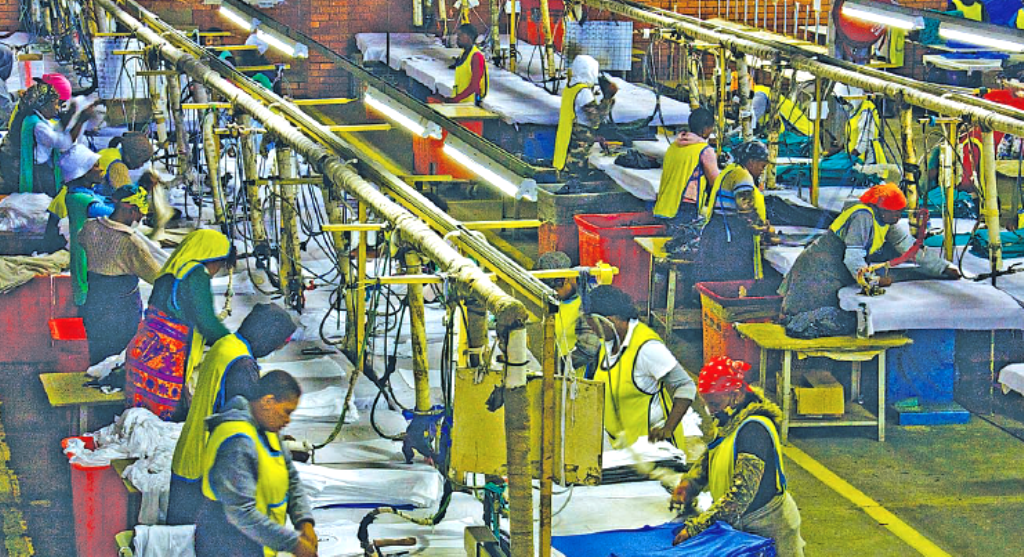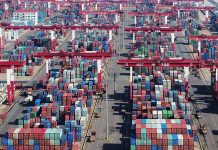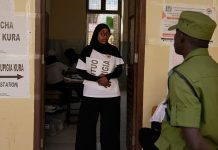AfricaPress-Tanzania: TANZANIA has been among the countries benefitting from export diversification that help hedge against adverse terms of trade shocks by stabilising export revenues and the negative impact of terms of trade in primary products.
According to the Export diversification in African countries, 2018 report, Tanzania is one of the sixth African countries with highest export diversification that reflects the concerted efforts put by the government recently in driving up industrial sector.
The other countries mentioned alongside Tanzania in the report are South Africa, Tunisia, Egypt, Morocco and Djibouti. For example, the enabling environment put by the fifth phase government in the past five years has led to the establishment of more than 8,400 new industries, creating over 480,000 new jobs.
Tanzania exports a range of traditional and nontraditional goods. Some of the traditional goods are namely cashew nuts, cotton, cloves, sisal and tobacco as well horticulture products while non-traditional products are gold and manufactured goods.
President John Magufuli said recently while inaugurating the 12th Parliament in Dodoma that said the government plans to create more than 8 million jobs in the next five years, where the industrial sector will definitely have considerable contribution.
President Magufuli stressed that more emphasis would be put in building more labour intensive industries that would not only create more jobs, but also industries, which utilised raw materials like leather, cooking oil and sugar.
This will go alongside with building industrial clusters depending on the type of crops grown in every region, an initiative that will create more jobs and reduce income poverty. The government efforts on building the resilient industrial sector will thus reduce further income poverty in society.
Friday last week, Tanzania joined the rest of African countries to commemorate the continent industrialisation day, an event that reminds us on the importance of industrial development for sustained and inclusive economic growth of the continent.
Industrialisation continues to be the main avenue of successful development and Tanzania and other African countries can leverage the salient features of emerging technologies to their advantage. Over the last decade, African industry has expanded and developed in a wider range of countries and in more diverse areas.
At the forefront of promoting smart industrial policies and mobilising infrastructure development funding for Africa, the Africa Development Bank (AfDB) on Africa Industrialisation Day 2020, urges the continent to accelerate industrialisation for the transformation of African economies.
The Bank said it is working to change and promote successful industrial policies, attracting funding to infrastructure and industry, supporting the growth of capital markets, and promoting enterprise development in general.
The African Development Bank counts Industrialising Africa as one of its high five key strategic aims, critical for the transformation of African economies.
“Industrialisation, where we add value to what we competitively produce and then export, and also trade among ourselves on the back of the African Continental Free Trade Area (AfCFTA) within a market of 1.3 billion people, should be prioritised and delivered,” said Solomon Quaynor, the Bank’s Vice President, Private Sector, Infrastructure & Industrialisation, in a message marking Africa Industrialisation Day.
Quaynor stressed that the Covid-19 pandemic had sharpened the need to accelerate industrialisation and urged a greater role for the private sector, including as a partner to the public sector.
“Resilience is key, and that means no matter the external shocks in the future, we should rebuild so that our people, particularly youth and women who head our households, have jobs and better incomes,” he said.
The Bank continues to support operationalisation of the AfCFTA. In August 2019, the institution extend ed a $4.8 million grant to support the establishment of the AfCFTA Secretariat in Ghana.
The Bank is working with African countries that are developing strategies for implementation of the AfCFTA, helping them to build capacity and leverage opportunities provided by freer trade.
When businesses can trade across borders, then industry can expand, economies can diversify, and countries can move up the value chain, according to the Bank’s 2020 Annual Development Effectiveness Review (ADER) released this week.
The report suggests that the Bank’s investments in 2019 benefited one million people. Micro, small and medium enterprises (MSMEs) that benefited from Bank projects trebled their turnover to 1 billion US dollars.
Several projects recently approved by the Bank are expected to help regional member countries exploit opportunities, including the construction and operation of a submarine internet cable in Seychelles and a project to expand access to finance for small and medium-sized enterprises in West Africa, the report noted.
The African Development Bank is also promoting development of economic zones that bring together an enabling business environment, backbone integrated infrastructure and transport near to agricultural production hubs.
“Agro-Industrial Processing Zones aim to train young people in rural areas with the needed skills and attract companies, particularly SMEs,” said Atsuko Toda, the Bank’s Director, Agricultural Finance and Rural Development.
The pandemic has also spurred opportunities for Africa to strengthen local manufacturing capabilities for basic and essential medicines, Personal Protective Equipment and other medical equipment.
“The Bank is undertaking a ground-breaking study to develop a plan for this, which will be ready before the end of the year. The plan will highlight opportunities, challenges, policy reforms required, financing windows and strategic partnerships to be forged to make this happen,” said Abdu Mukhtar, Director of Industrial and Trade Development at the African Development Bank.
Celebrated each year on November 20, Africa Industrialisation Day offers governments and development partners opportunities to explore or highlight initiatives that advance Africa’s industrialisation. The theme for 2020 is Inclusive and sustainable industrialisation in the AfCFTA era.







